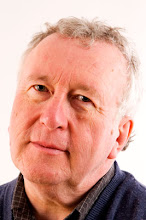"Bronte" begins with the three actresses playing the three Victorian novelists addressing the audience directly about the three people they are about to portray. There is a faint whiff of the animated lecture here but once the costumes are on and the actresses become the characters, we are off on a whirlwind journey through their lives. We become so attached to the three sisters that we feel their struggles, their emotions and their triumphs keenly and deeply. Charlotte Bronte (Kat Corrigan) dominates the stage through her physical and emotional presence, very much as the real Charlotte must have done in the Bronte family. Charlotte had the ambition to be "forever known", to "create something of one self that would live outside one's own body", and was consumed by the desire to write from her childhood. She quarrelled with her younger sister, the elemental Emily (Francesca McCrohon).: "You are fascinated by me, but I am the hardest to find out about..." We were fascinated by Francesca's performance as the creator of "Wuthering Heights". Francesca captures the strangeness of the woman who is only truly at home striding relentlessly and endlessly across the moors. We also believe in her as a remarkable poetess.
The third sister, Anne (Lorraine Galliers), is portrayed clearly and passionately as an early Socialist and prototype Suffragette. She finds herself as the meeting point between her two sisters and Lorraine makes her a rounded and believable character.
The three women are joined by the ghosts of Cathy Earnshaw from "Wuthering Heights" and Bertha from "Jane Eyre". Both ghosts are played by the same actress (Lynda Fleming). For me, the play lifts off on the first appearance of Miss Fleming and she differentiates between the two characters magnificently. I loved the way she interacts as the characters with the two authors. The vaginal slit through which the characters enter is a striking symbolism of the set and I wondered if it was intentional. I would wish for a greater variety in the entrances themselves but Miss Fleming gives a beautifully nuanced and highly physical interpretation of two key parts.
Then we come to the two male actors. Callum West, making only his second appearance for the Bench Theatre, manages to capture the vainglorious brother on whom the hopes of the Bronte family were built. He sketches in the promise of the early youth and the disillusionment of the man. He is convincing as the man driven to the drink and as the man who loved too well if not wisely. Callum also manages the difficult feat of convincing us as Heathcliff, one of the most passionate creations in English literature.
David Penrose is rightly dubbed one of the "Bench stalwarts" as he has appeared in many roles for the Bench Theatre. What I liked here was his subtleties as he moved from character to character, sometimes in a split instant. I believed in Patrick Bronte, the patriarch. The scene between David as Heger, the Belgian teacher, and Charlotte Bronte explodes at the end into a prose aria and a wonderful sequence of young unrequited, desperate love. It is as Rochester with Charlotte playing Jane Eyre that David wrings the withers and made me want to see that play (also written by Polly Teale). The scenes between Charlotte and Arthur Bell Nicholls though warm the cockles of the heart.
The direction by Ingrid Corrigan is light of touch but clear in its aim to extract a performance of "imagination" to live long in the memory. I felt I experienced a great deal of the lives of three remarkable English writers and caught a glimpse into the pain and cost of the creative process. This production is a reminder of how good the non-professional theatre can be in the hands of such a cast and director.
Friday, 25 April 2008
Subscribe to:
Post Comments (Atom)

No comments:
Post a Comment